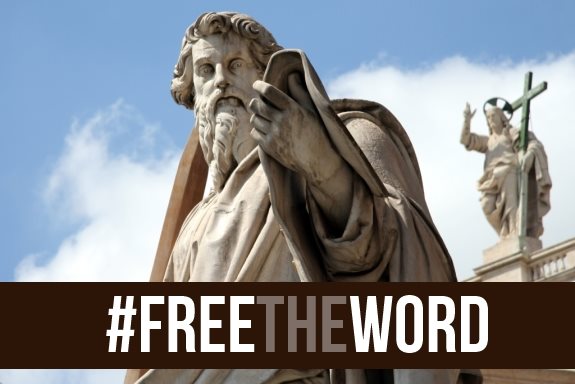
I have been waiting to see the post Brandon Vogt was planning to publish regarding the current copyright situation. Now that it has been published and I have read it I find it to be an even better and a more effective response than even his normally high standards.
He aptly states the current situation and then proposes solutions to the problem to both protect copyright and to grant access. Provides a history of how the currently policy has stifled inovation regarding evangelization. Links to what others have written about this along with legal and canon law considerations. I also really like how he goes through an array of anticipated questions and answers them.
Previously I along with others had suggested that the solution might involve using a Creative Commons license instead. Brandon has specifically recommended using a Creative Commons-Attribution-NoDerivs license.
In his well formulated post he suggests:
What you can do:
- Share this post with all of your friends [tweet it or use the social media icons above]
- Charitably contact the Holy See and USCCB and ask them to read this [contact info]
- Sign this petition by leaving a comment at the bottom of this post (e.g. “Free The Word!”)
If you are so inclined I would urge you to go to his blog and if possible do all of the above. It is one thing to complain about the current policy and its effects, another to urge looking at this issue and working to resolve it.
Brandon Vogt does not pretend to have all the answers or that the Creative Commons license is the best solution. Certainly as a Church we should be able to come up with a solution to this problem. This is not the most pressing problem facing the Church, but it is not unimportant either.
On a side note I did know some of the history involving the heavy-handed approach the USCCB has taken in the past. Still how they treated Matthew Warner is indeed shameful and such an embarrassment.
I am also reminded of Jerry Pournelle’s “Iron Law of Bureaucracy”:
In any bureaucracy, the people devoted to the benefit of the bureaucracy itself always get in control and those dedicated to the goals the bureaucracy is supposed to accomplish have less and less influence, and sometimes are eliminated entirely.
